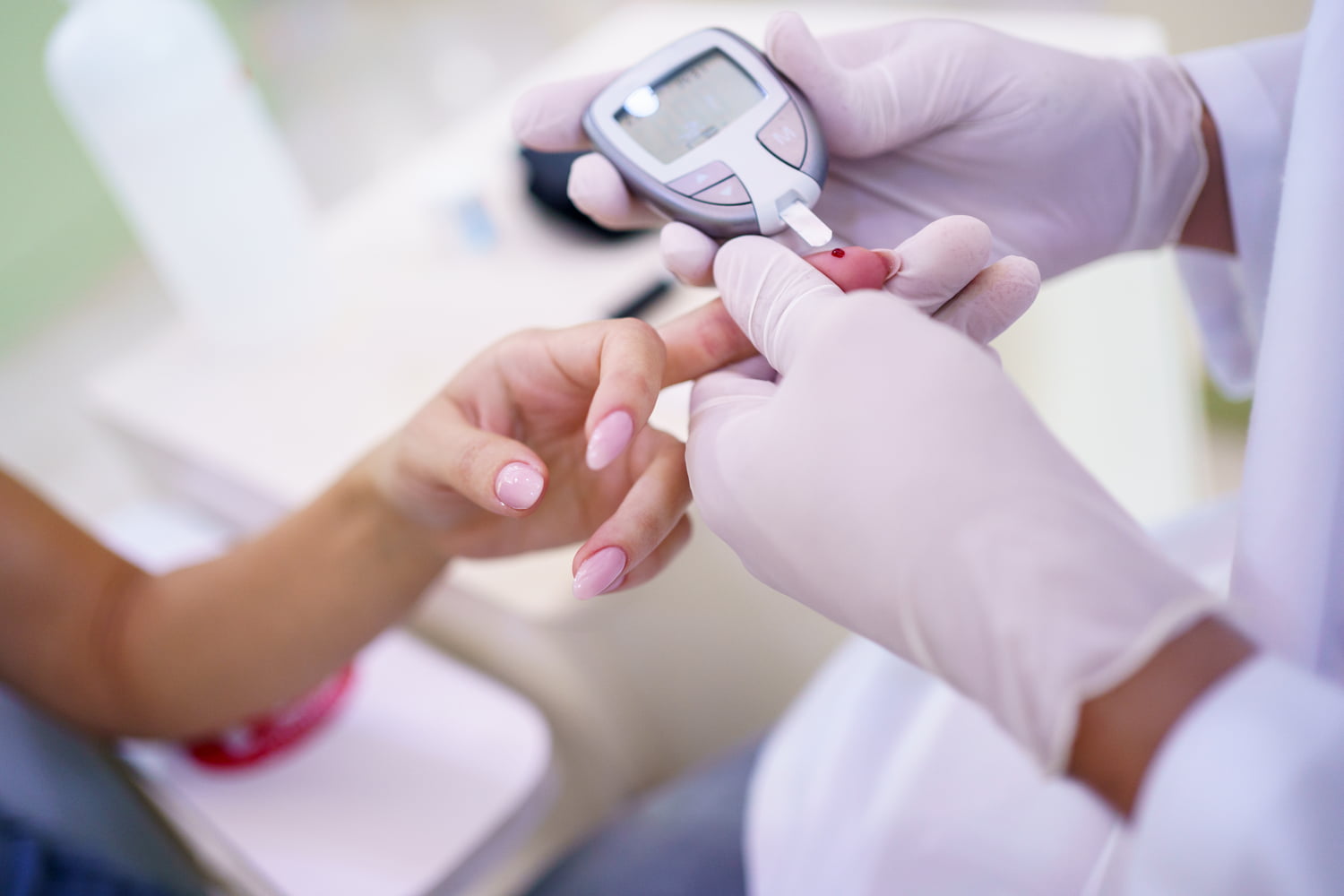Menopause marks a significant milestone in a woman’s life—a natural transition signaling the end of reproductive years. While it is a normal phase, menopause can bring a lot of physical and emotional changes with it, often impacting a woman’s overall well-being. For those considering fertility options, understanding menopause becomes even more crucial.
From us at Klinik Casabrina and our fertility services, we want to educate you about a condition you may encounter in your golden years. If You’re currently experiencing it, Learn more about what that means for your health and let us help you transition into this new phase of your life.
What is Menopause?
Menopause (spelled menopaus in Malay) is a natural biological process that marks the end of a woman’s reproductive years. It typically occurs in women between the ages of 45 and 55. According to a report published by the Ministry of Health, the average life expectancy of a Malaysian woman was 78.3 years and the average age of menopause in Malaysia is 50.7 years. This means one third or more of her life is going to be spent after menopause.
During menopause, a woman’s ovaries gradually produce less oestrogen and progesterone, the hormones responsible for regulating the menstrual cycle and supporting fertility.
Menopause is officially diagnosed after a woman has gone 12 consecutive months without menstruating, confirming that her ovaries are no longer releasing eggs. Patients will lose their period gradually over the course of a few years, during which time other symptoms of menopause will present itself.
Symptoms of Menopause
Hot Flashes and Night Sweats
Sudden, intense feelings of heat, often accompanied by sweating, are common during menopause.
Irregular Periods
Before menstruation stops entirely, women may experience irregular periods, with cycles becoming shorter or longer.
Vaginal Dryness
Decreased oestrogen levels can lead to vaginal dryness, causing discomfort during intercourse and an increased risk of urinary tract infections.
Mood Changes
Hormonal fluctuations can contribute to mood swings, irritability, anxiety, and depression.
Sleep Disturbances
Many women experience insomnia or disrupted sleep patterns during menopause, often due to night sweats or hormonal changes.
Bone Density Loss
Oestrogen plays a crucial role in maintaining bone density, so its decline during menopause can increase the risk of osteoporosis.
Managing Symptoms of Menopause
Managing the symptoms of menopause involves a combination of lifestyle modifications, medical interventions, and alternative therapies aimed at alleviating discomfort and promoting overall well-being. Here are some strategies commonly recommended for managing menopausal symptoms:
Hormone Replacement Therapy (HRT): HRT involves taking oestrogen, usually combined with progestin, to replace the hormones that decline during menopause. This can help relieve symptoms such as hot flashes, vaginal dryness, and mood changes. However, HRT is not suitable for everyone and may carry certain risks.
Lifestyle Modifications: Simple lifestyle changes can make a significant difference in managing menopausal symptoms. These include:
- Dietary Changes: Eating a balanced diet rich in fruits, vegetables, whole grains, and lean proteins can help support overall health during menopause. Limiting caffeine, alcohol, spicy foods, and sugar may also help reduce hot flashes and mood swings.
- Regular Exercise: Engaging in regular physical activity, such as brisk walking, swimming, or yoga, can help alleviate symptoms like mood swings, insomnia, and bone density loss. Exercise also promotes cardiovascular health and maintains muscle strength and flexibility.
- Stress Management: Practising stress-reduction techniques such as deep breathing, meditation, mindfulness, or progressive muscle relaxation can help reduce anxiety, irritability, and tension associated with menopause.
- Maintaining a Healthy Weight: Achieving and maintaining a healthy weight can help minimise the risk of certain menopausal symptoms, such as hot flashes, joint pain, and cardiovascular issues.
- Dietary Changes: Eating a balanced diet rich in fruits, vegetables, whole grains, and lean proteins can help support overall health during menopause. Limiting caffeine, alcohol, spicy foods, and sugar may also help reduce hot flashes and mood swings.
Alternative Therapies: Some women find relief from menopausal symptoms through alternative therapies such as:
- Herbal Supplements: Certain herbal supplements, such as black cohosh, soy isoflavones, and red clover, have been studied for their potential to alleviate hot flashes and other menopausal symptoms. However, more research is needed to determine their efficacy and safety.
- Acupuncture: Acupuncture, a traditional Chinese medicine practice involving the insertion of thin needles into specific points on the body, may help reduce hot flashes, insomnia, and mood swings in some women.
- Mind-Body Therapies: Techniques like yoga, tai chi, and mindfulness-based stress reduction can help improve overall well-being and may alleviate menopausal symptoms such as hot flashes, sleep disturbances, and mood swings.
- Herbal Supplements: Certain herbal supplements, such as black cohosh, soy isoflavones, and red clover, have been studied for their potential to alleviate hot flashes and other menopausal symptoms. However, more research is needed to determine their efficacy and safety.
Medications: In addition to hormone therapy, certain medications may be prescribed to manage specific menopausal symptoms. For example, selective serotonin reuptake inhibitors (SSRIs) and serotonin-norepinephrine reuptake inhibitors (SNRIs) are sometimes used to treat hot flashes and mood disturbances.
Vaginal Moisturisers and Lubricants: For vaginal dryness and discomfort, over-the-counter vaginal moisturisers and lubricants can provide relief and improve comfort during sexual activity.
Regular Health Screenings: Women going through menopause should continue to receive regular health screenings, including mammograms, bone density scans, and cholesterol tests, to monitor for potential health concerns with ageing and hormonal changes.
It’s important for women experiencing menopausal symptoms to work closely with healthcare providers to develop a personalised treatment plan tailored to their individual needs and preferences. Our experienced gynaecologists can help you explore various management strategies and find what works best for you.
Frequently Asked Questions About Menopause

Common symptoms of menopause include hot flashes, night sweats, mood swings, vaginal dryness, changes in libido, and irregular periods.
Menopause typically occurs around the age of 45 to 55, with the average age of onset being 51. Menopausal symptoms can last for several years, with the duration varying for each individual.
Menopause is associated with an increased risk of osteoporosis, heart disease, and changes in breast health. Regular health screenings and lifestyle adjustments can help mitigate these risks.
Management options for menopausal symptoms include hormone therapy, lifestyle changes (such as exercise and dietary adjustments), alternative therapies (such as herbal supplements and acupuncture), and medications to alleviate specific symptoms.
Lifestyle adjustments such as regular exercise, stress management techniques, dietary changes (including calcium and vitamin D intake), and relaxation practices can help alleviate menopausal symptoms and promote overall well-being.
While fertility declines during menopause, it is still possible to become pregnant until menstruation has completely ceased. However, contraception may still be necessary to prevent unintended pregnancies.
Support at Casabrina Women’s Clinic
If you suspect that you or someone you know are experiencing menopause, just know that Klinik Casabrina is here to support you and provide your services to help manage your symptoms or even explore fertility options. We’re a clinic experienced with menopausal symptoms. You might want to check any irregular periods you may have or take a fertility screening for early detection.
We can confirm whether or not you’re undergoing menopause and find steps to move forward from there. You could also find us proactively if you have any fertility goals in mind and we can do our best to give recommendations during a consultation.





